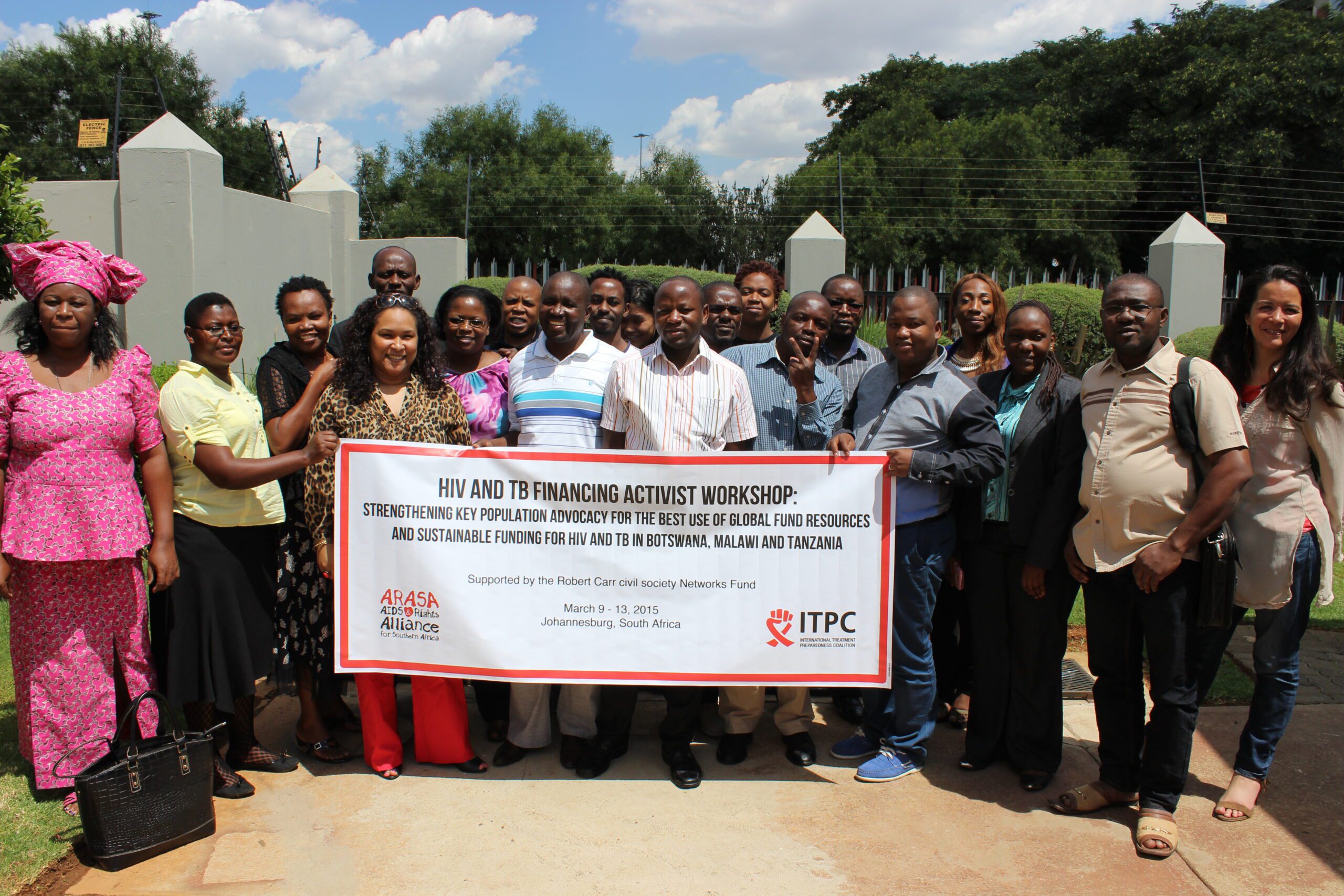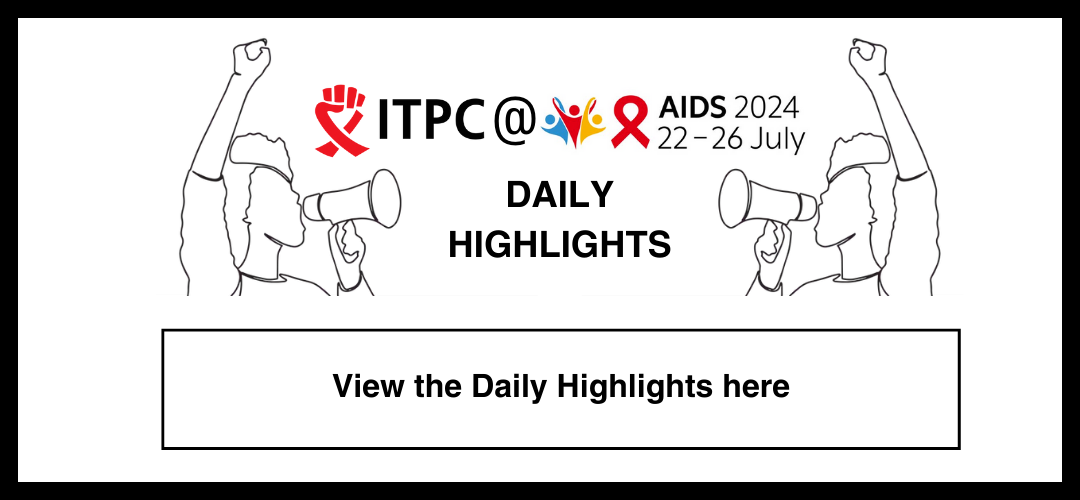On 9-13 March 2015, ITPC, in collaboration with the Aids and Rights Alliance for Southern Africa (ARASA), facilitated an HIV and TB financing activist workshop aimed at strengthening key population advocacy for the best use of Global Fund resources and sustainable funding for HIV & TB in Botswana, Malawi and Tanzania. The meeting brought together 13 key population activists and leaders from strategic organizations in all 3 focus countries ranging from those led by and serving people who use drugs, sex workers, women and LGBTI people. Experts from The Global Forum on MSM (MSMGF), the Southern Africa Litigation Centre (SALC), the Center for Economic Governance and AIDS in Africa (CEGAA), and the Global Fund itself also contributed to the workshop. ITPC’s Regional Coordinators in West, Central and East Africa, who are leading community monitoring projects supported by the German Backup Initiative (GIZ) also supported the facilitation of the meeting and group discussions. Lively debates and discussions around the importance of key population representation and key population issues being not just a part of CCM talks, but ensuring that this translates into funding for programming for those most affected by HIV and TB made the meeting a forum for information-sharing and advocacy agenda-setting. Health finance and budget tracking as a means to more evidence-based and effective advocacy was identified as a key capacity gap among key populations and is an area that ITPC is actively following up on for further technical support. The meeting culminated with each country developing (either joint or by organization) a peer- and facilitator-reviewed advocacy work plan that would form part of their application for direct support through a closed request for proposals from ITPC/ARASA.
The agenda was organized in order to fulfill the following objectives:
- Review the fundamentals of HIV and TB financing [including national, international, innovative financing options, government commitments (Abuja et al), government contributions].
- Discuss the Global Fund as a mechanism for funding HIV and TB and the New Funding Model [including history, architecture, in-country processes, entry points for civil society, key affected populations, replenishment advocacy].
- Discuss HIV and TB financing advocacy with an emphasis on (but not limited to) national and international investment in health, Global Fund processes and Global Fund replenishment advocacy
- Explore ways to expand advocacy for increased national and international investment in community-led evidence informed human rights programming [with an emphasis on (but not limited to) intellectual property issues, HIV & the Law Commission recommendations, issues for key populations groups such as criminalization of HIV transmission, legal and policy reform, access to services and commodities]
- Strategic small group work for the development of action plans / capacity strengthening and advocacy plans for activists to cascade the learning to their peers at country level, expand and strengthen meaningful engagement of key populations across Global Fund related processes and platforms and advocate for better investment of Global Fund and other resources.
- Explore opportunities for further collaboration and support among organizations and with ARASA/ITPC.

